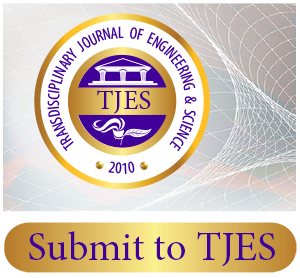Systems Engineering Transformation: Transdisciplinary Endeavor
Abstract
System Engineering (SE) solves the most complex problems by bringing together societal issues, theoretical engineering, and the transformation of theory into products and services to better mankind and reduce suffering. The research of this paper utilizes transdisciplinary engineering to develop a SE methodology for the concept stage permitting proposal generation accuracy and expediency to provide solutions to counter regional aggressive threats.
Today’s world stage is witnessing superpower dominance over neighboring less military-capable nations. The societal impact goes beyond the borders of conflict and affects the world’s global market. In the deterrence of dominance, the United States’ posture is providing weapon systems to the victim in our increasingly unstable geopolitical environment. The US has many reasons to make this technology available to other nations; just as it has many reasons to constrain proliferation.
The United States Government is energizing the U.S. defense industry to provide the needed weapon systems following US prescribed acquisition methods. The sale of US weapon systems to International Customers is through a US defense contractor implementing a specialized acquisition model specific for international customers acquiring exportable defense articles. These constraints in the form of export regulations, critical to this paper, are essential to account for early in the concept development. The added complexity to concept development in international defense is that in addition to the usual, “what capabilities does the customer need to accomplish their mission?” and “what are the alternative solutions?” questions, we need to address the fact that US contracts may be required to limit capabilities and/or the technical solution space in opposition to the international customer’s desires. Whereas we normally turn to systems engineering processes to address such complex problems, we have found that the current SE methodology for the concept stage does not address the complexities associated with international sales.
The international customers’ need for complex solutions in an expedited time frame emphasizes the prime contractor’s complex and inadequate proposal concept stage. Under U.S. government procurement, the prime contractor shifts a portion of the design phase into the concept phase. This modality requires significant time and funding to fully develop the technical baseline, meanwhile, the international customer requires a solution to react to an immediate threat to their country’s safety. The main objective of this research is to develop a system engineering methodology for the concept stage to effectively understand the technical baseline maturity for proposals specific to International Customers.


